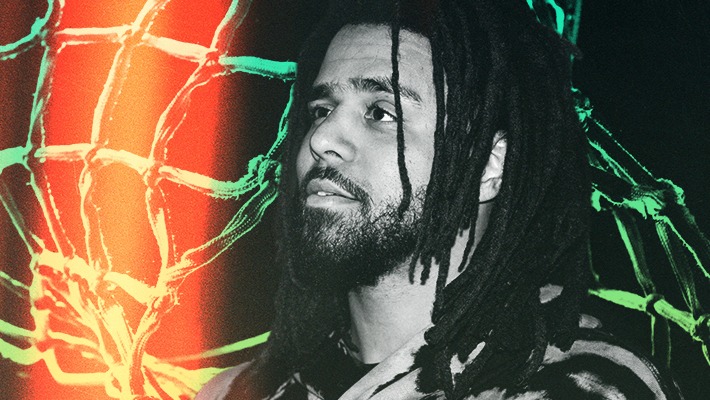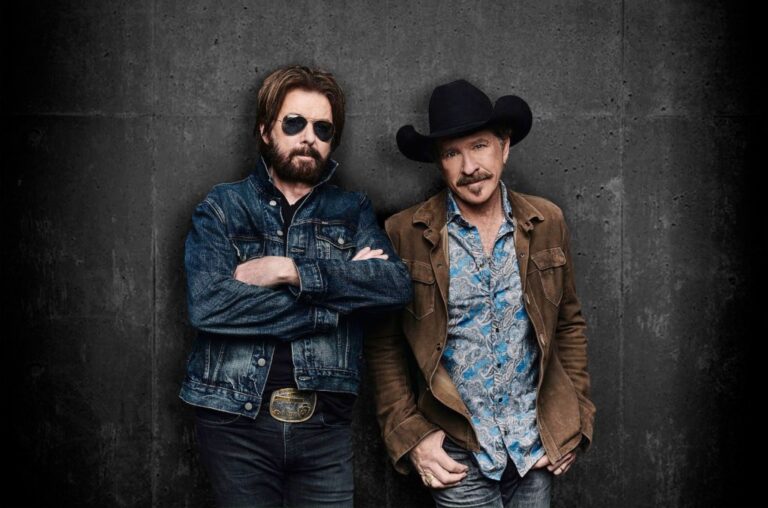J. Cole’s new documentary, Applying Pressure, tells us a lot we already know about the making of his new album The Off-Season. The difference is that much of it is now in his own words and voice, instead of relayed through a proxy and edited for clarity. The result is an insight into his process and his philosophy while crafting the long-awaited follow-up to his 2018 album, KOD. Specifically, we hear how his goal was to elevate his craft, and how in pursuing that goal, he approached improvement in rap the same way a basketball player might strive for improvement through strenuous exercise and targeted drills.
The comparison between sports and hip-hop has been drawn before; hip-hop is often outright described as a sport in itself, drawing parallels between the competitive aspect of battle rap and combat sports like boxing. But hip-hop is perhaps more closely tied to basketball than any other sport, in large part due to their commensurate rise in popularity in the decades since the 1970s. That rise is echoed not just in Cole’s current outlook, but also in his career trajectory overall. In Applying Pressure, he even points out how his failure to dedicate himself to working harder to earn minutes on the court mirrored an early self-made obstacle to his rap goals.
Cole describes putting himself through writing drills in much the same way a pro basketball player — or even an aspiring pro — would run dribbling, passing, and shooting drills while training to increase their agility, endurance, speed, stamina, and strength, focusing on exercises that build and protect the muscle groups and joints that players use most often. It’s not quite the same with rap; as often as basketball analogies are applied to the skills required to excel (I’ve been accused of overusing them myself a few times over the years), rap is one of those things that isn’t dulled with age. If anything, one’s rap skills should increase with experience — the bars get wittier, the range of true-life stories expands, the resources available for production and collaboration deepen.
This would appear to be Cole’s approach as well. In his cover profile in the latest issue of Slam magazine, he makes the distinction himself: “In basketball, you have no choice, your body tells you when,” he acknowledges. “In this sh*t, I’ve got a choice. It was a decision. It was, ‘If it happens, it’s because you allowed it to happen. This is the point where it takes place, where the n****s that you love [just don’t] hit the same. So you could fall victim to that right now and accept that and just keep either making music for the f*ck of it or just because it’s a business opportunity there, or you could really put in the hours and the months and the years it’s going to take to max out on your skill level and to max out on your ability so that when you look back you’re like, ‘Damn, I really did check all the boxes. I really did push myself as hard as I could go.’”
Rather than following in the footsteps of some of his forebears who grew lax in their own approach and let the game pass them by, Cole dedicated himself to this process of improvement with the same level of commitment with which he re-dedicated himself to pursuing his basketball dreams. The same day the documentary premiered on YouTube, just one day before appearing on the cover of a magazine best-known for its profiles of pro athletes (and potential pros), J. Cole joined the ranks of those pros by signing a contract to play for the Rwandan national team in the newly established Basketball Africa League. That feat also highlighted how the diligence to chase athletic goals can be applied to any other. It’s about the hours put in away from the spotlight, breaking through the pain and frustration of pushing yourself and of falling short, and it’s about never losing the desire to be the best of the best and knowing that the only person who controls that destiny is yourself.




